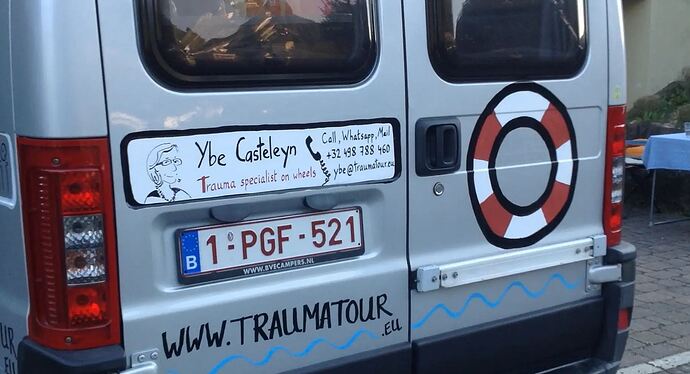What is the moral code of a person? And where does it come from?
What does spirituality mean in the 21st century?
“One can’t live by bread alone.”
As the economic and political landscape of the previous generation continues to change, people experience growing uncertainty and feel threatened. It seems that the resulting anxiety is not necessarily connected to material insecurity of a person, as many of those whose livelihoods have improved experience some sort of… emptiness and unrest. It shows, that bread alone is not enough.
Is it possible that the moral and spiritual values with which we raise our children to prepare them for their future lives are different, compared to the past many of us grew up in?
Environmental disasters, global pandemics, the use of weapons gravely contaminating specific war-torn areas, terrorist attacks, the ever-present threat of war with apocalyptic consequences, the pushing of the borders of human experience and existence in the medical, social and psychological senses … are just some of the contours of the new reality, a long-term social crisis, of which we, too, are protagonists. This particularly holds true for geographic localities such as the Western Balkans region, whose residents have personally experienced the evil nature of the new global social reality. Faith in a future that will bring us satisfaction, better health and education, safety and relief has been substituted by fears and doubts of whether life will even be possible in the future that awaits us.
We’d like to think together about what can be done to provide people around us with emotional and psychological support that would allow them to be better prepared for the challenges of our time. What are the elements of our past(s) that can help us to maintain our spiritual and moral wellbeing as individuals and as communities, and which ones are no longer useful to us?
For example In Poland, the Catholic church provides the majority of people with such support - 90% of Poles declare their belonging to the Catholic church, most of them attend weekly mass and pray at home. At the same time, the growing numbers of young people turn away from the Church and religious practices. As the PEW Research Center shows the gap between the religiosity of older and younger generations is growing. Can we conclude from this that people are simply turning away from spirituality? It is not so simple. For example while the Czech Republic is one of the most secular countries in the region according to the Czech Statistical Office, the values of culture and symbolic representations of wellbeing are associated with a high degree of spirituality.
These changes are a result of a modern lifestyle - moving to big cities, having access to higher education, better health care. The better we live, the less we’re interested in God, it seems - and that is the case with most of the developed and developing countries. Secularisation around the world usually goes hand in hand with the improvement of economic conditions.
And yet, isn’t there something missing in this picture?
Material success alone does not provide us with happiness and a sense of fulfillment. Each generation seems to follow a moral direction, without which it would be difficult for it to achieve peace of mind, and, well, yes, spiritual fulfillment. Regardless of whether we participate in weekly masses or decide to take a break from the Church, we continue to ground our lives in some values and try to follow role models who shape our decisions and actions. They tell us how to relate to our neighbors and relatives, how to treat the nature that surrounds us and how to raise our children.
If we look below the surface, we are seeing the rise of out of church movements and new spiritual and cultural outlets such as women’s gospel choirs (The Generation Center in Liberec) or even yoga! In Poland some people are responding by expressing an overwhelming support for parents occupying the Parliament in an attempt to improve the lives of their disabled children. In Greece people are practicing values of solidarity to deal with the breakdown of the healthcare system; from Serbia we hear the plea for equality and empathy with LGBT minorities.
As the economic and political landscape of the previous generations continues to change, we notice a feeling of instability and anxiety experienced by many citizens in different parts of Europe and beyond. Perhaps there is a need for reflecting on what we need to cope and be psychologically and emotionally healthy in this new time.
We want to learn how your culture is similar or different to how people in other parts of the world in this respect. As well as what can we learn from each other. How do your personal belief conform to or disagree with beliefs of people you know? Do you consider yourself the norm or an exception in your country? And how are you contributing to common values and a contemporary "national culture" ?
These questions are significant in light of our search for understanding well-being from a variety of perspectives, including living well together in our countries and with other Europeans.
We have created a special forum for this need, where we can safely talk about important topics.
We will avoid conflicts and insults here, we will provide all participants with the right conditions to express their own experiences, opinions and feelings. Without judgement or imposing our ideas on one another.
Thanks to you, we will understand what are the life experiences of anyone who has something to say about it.
Those who are especially active in the conversation are eligible to get a 200 € reward for their contributions if they are based in Europe. More information about this here: Show us stories that matter, become an expert in a topic and get paid 200 € - International - Edgeryders
We invite you to participate in this discussion.
- Share your personal experience about this issue here (Add New Topic): International - Edgeryders
- Welcome to join us for a relaxed virtual chat to meet other participants and learn more about this initiative here: http://bit.ly/2V0ldLI**
We look forward to meet you,
@Jan, @Jirka_Kocian, @johncoate, @Maja, @MariaAlinaAsavei, @natalia_skoczylas, @Noemi

